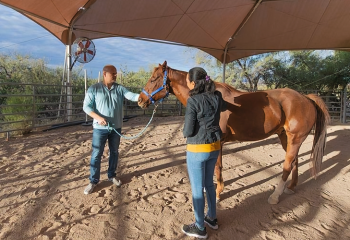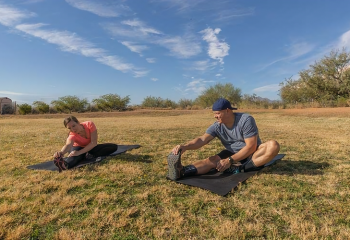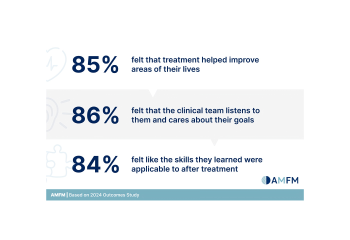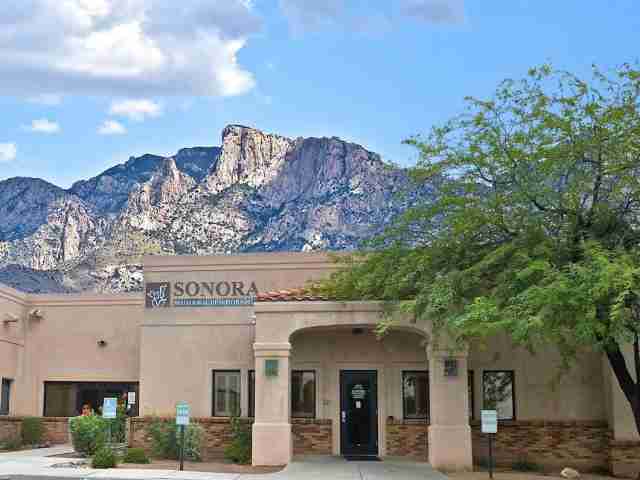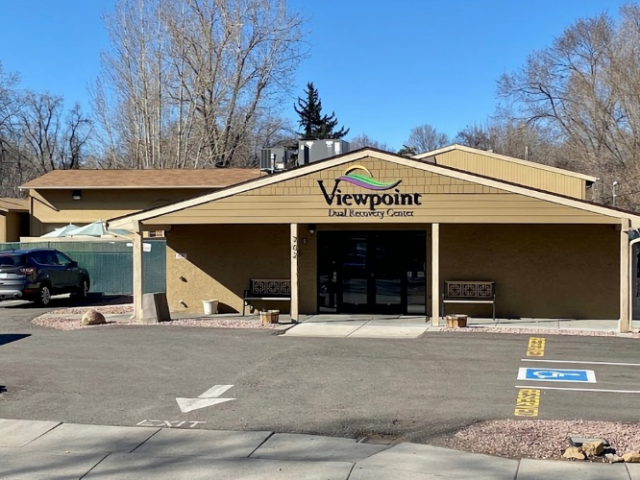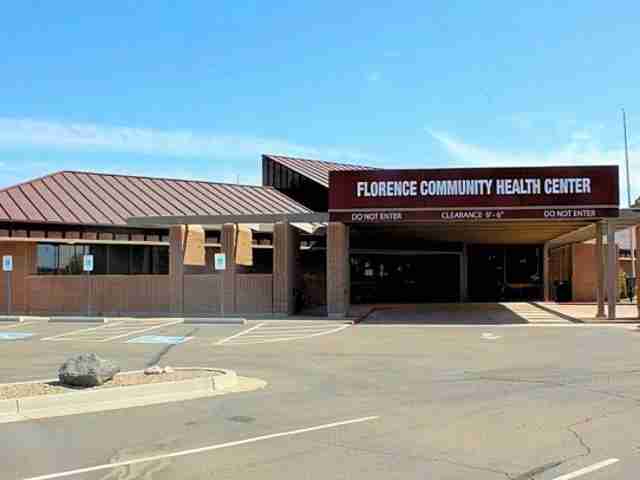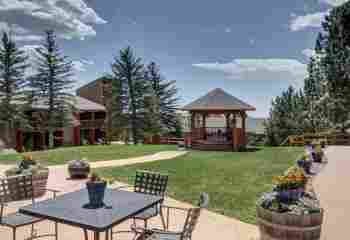More About Schizophrenia Treatment Centers
Schizophrenia is a chronic and severe mental disorder that affects how a person thinks, feels, and behaves. Symptoms such as delusions, hallucinations, and disorganized thinking can significantly impact a person's perception of reality, thinking processes, emotions, and social interactions.
Common symptoms of schizophrenia include:
- Delusions: False beliefs that are not based in reality. These beliefs may involve ideas of being persecuted, having special powers, or having a grandiose identity.
- Hallucinations: Sensory experiences that are not real but are perceived as real. Auditory hallucinations, such as hearing voices, are the most common, but hallucinations can also affect other senses like vision, smell, or touch.
- Disorganized thinking: Individuals with schizophrenia may have difficulty organizing their thoughts, making coherent speech, or connecting ideas logically. Their speech may become tangential or incoherent.
- Abnormal motor behavior: This can manifest as repetitive movements, unusual postures, or catatonic behavior where the person becomes unresponsive and immobile.
- Cognitive difficulties: People with schizophrenia often experience problems with attention, memory, and executive functions such as planning and decision-making. These cognitive impairments can affect daily functioning and make it challenging to maintain employment or academic performance.
The onset of schizophrenia typically occurs in late adolescence or early adulthood, although it can develop at any age. The symptoms can be chronic or episodic, with periods of remission and relapse.
What causes Schizophrenia?
The exact cause of schizophrenia is still not fully understood; however, research suggests that a combination of genetic, environmental, and neurochemical factors contributes to the development of this complex mental disorder.
Genetic factors: Schizophrenia tends to run in families, which indicates a genetic component.
Environmental factors: Environmental factors may play a role in triggering schizophrenia in genetically predisposed individuals. These factors include prenatal complications, exposure to certain viruses or toxins, birth complications, and early childhood stress or trauma.
Neurochemical imbalances: Schizophrenia may involve abnormalities in the brain's neurotransmitter systems, particularly affecting dopamine and glutamate. These neurotransmitters play crucial roles in regulating information processing, cognition, and emotions. Imbalances could contribute to symptoms such as disorganized thinking.
Brain abnormalities: Structural and functional abnormalities in areas like the prefrontal cortex, hippocampus, and amygdala could contribute to schizophrenia onset. These areas are responsible for cognitive processes, memory, and emotional regulation.
Long-Term Effects of Schizophrenia
The long-term effects of schizophrenia vary by the person’s care plan, medication management, social support, and overall health. Long-term effects might include cognitive impairments, social and occupational difficulties, the possibility for relapse and hospitalization, and co-occurring disorders.
Cognitive impairments: Many individuals with schizophrenia experience cognitive deficits, including problems with attention, memory, and executive functions. These impairments can greatly affect daily functioning.
Social and occupational difficulties: Schizophrenia can lead to social and relationship challenges. Someone with schizophrenia may experience social withdrawal, difficulty expressing emotions, and reduced motivation. This can also impact their job, making it challenging to maintain steady employment or pursue educational opportunities.
Relapse and hospitalization: Schizophrenia is a chronic condition that often includes periods of remission and relapse. Without proper treatment and support, people with schizophrenia may experience relapses in symptoms, leading to hospitalizations or increased levels of care.
Co-occurring disorders: People with schizophrenia are at an increased risk of developing other mental health disorders, such as depression, anxiety disorders, and substance addiction.
While schizophrenia is a chronic condition, with appropriate treatment and support, people can manage their symptoms effectively and lead fulfilling lives. Early intervention, medication, therapy, social support, and a holistic treatment approach are crucial to manage the long-term effects of schizophrenia.
Treatment for Schizophrenia
Treatment for schizophrenia typically involves a combination of medication, psychotherapy, and support services. The specific treatment plan may vary depending on the person’s symptoms, severity, and personal preferences. It's essential to work closely with a healthcare team, which may include psychiatrists, psychologists, social workers, and other mental health professionals.
Medication: Antipsychotic medications are a cornerstone of schizophrenia treatment. These medications help reduce the severity of symptoms such as hallucinations, delusions, and disorganized thinking. It's vital to work closely with a psychiatrist to effectively manage the medication(s).
Psychotherapy: Talk therapy is a great way for people with schizophrenia to learn new ways of thinking and coping skills for their symptoms. Cognitive behavioral therapy (CBT) can challenge and change distorted thoughts, improve coping strategies, and reduce symptoms. Family therapy educates family members about schizophrenia, improves communication, and builds a supportive environment. Social and life skills training and vocational support helps individuals develop and enhance their social and occupational skills.
Supportive services: People with schizophrenia often require ongoing support to manage their condition. They can receive support through case management, housing assistance, vocational training, and support groups. These services provide practical assistance, promote community integration, and enhance overall well-being.
Self-help strategies: Alongside professional treatment, people with schizophrenia can engage in self-help strategies to manage their symptoms. These may include learning stress management techniques, maintaining a regular sleep schedule, regularly exercising, and avoiding substance use.
Some people with schizophrenia may need a more intensive level of care to help monitor and manage their symptoms. When talking to your doctor, consider discussing which level of care best fits your needs:
- Outpatient (OP): You’ll meet 1-2x per week with your provider and others in treatment.
- Intensive outpatient (IOP): You’ll meet 3-5x per week for several hours at a time for more intensive care.
- Partial hospitalization (PHP): You’ll meet 5-7 times a week for a full day.
- Residential: You’ll live in a rehab for 28+ days and engage in treatment with a comprehensive staff and a community of peers.
- Inpatient: You’ll live in a treatment center or hospital-like setting and have 24/7 monitoring.
Treatment for schizophrenia is individualized, and what works for one person may not work for another. It may take time to find the right combination of treatments and strategies. If this condition co-occurs with another, like addiction, seeking care that provides specialized dual diagnosis treatment is crucial.
Questions to Ask My Provider
To navigate your different treatment options, you may want to discuss some important questions with your provider:
- What type of medication(s) will I be on? Do those medications have side effects?
- How often will I check in with my provider about my medication dosage and effectiveness?
- What are my treatment options? What are the benefits and risks of each?
- What can I do in a crisis situation when my symptoms flare up?
- Are there lifestyle changes I can do to help manage symptoms?
How Can I Find Support?
Talk to your primary care provider about your condition to find your recovery plan. And include a loved one in the process, so they can provide support where they can. To begin planning your next step, you can browse rehabs that offer schizophrenia treatment.
If you or someone you know is in a crisis, call 911 or go to the emergency room. If you live outside of the United States, you can find your country’s emergency number in this list.
How to Help Someone with Schizophrenia
Supporting someone with schizophrenia requires compassion and patience. Ask them about what they’re experiencing, and listen without judgment. Reaffirm that you’re here to support them. And celebrate wins, big and small.
You can help your loved one create a structured schedule that incorporates meal times, medication management, and leisure time. Carve out time to practice the coping skills they learn in therapy, as well. When their symptoms are elevated, your loved one should have a crisis plan that details aspects such as going to a safe place and practicing grounding techniques.
Help your loved one set up doctors appointments and accompany them if they’d like. Keeping them accountable, while letting them live independently, will help them stay on track with their treatment plan. You can also learn more about schizophrenia and its effects to better understand what the person is going through. This knowledge can help you provide appropriate support.














